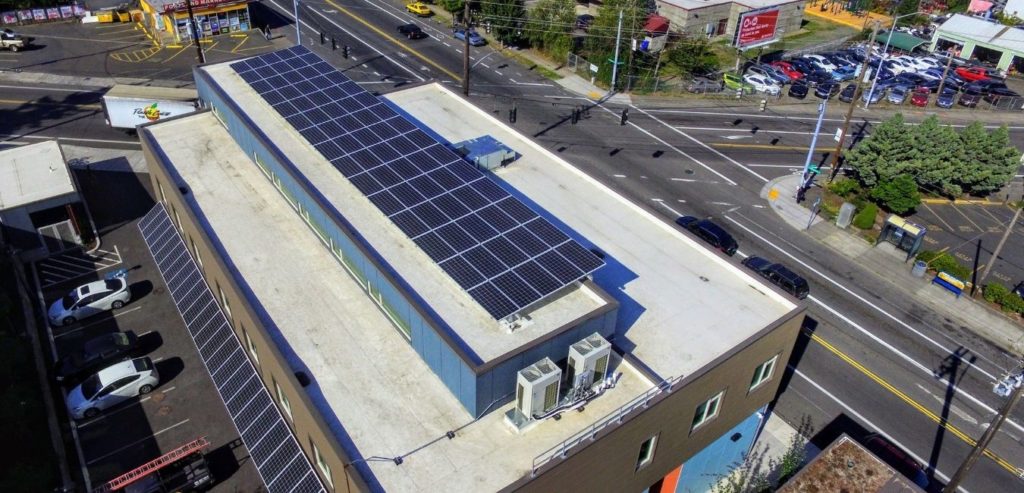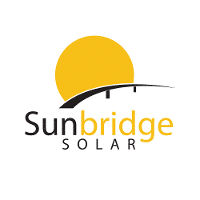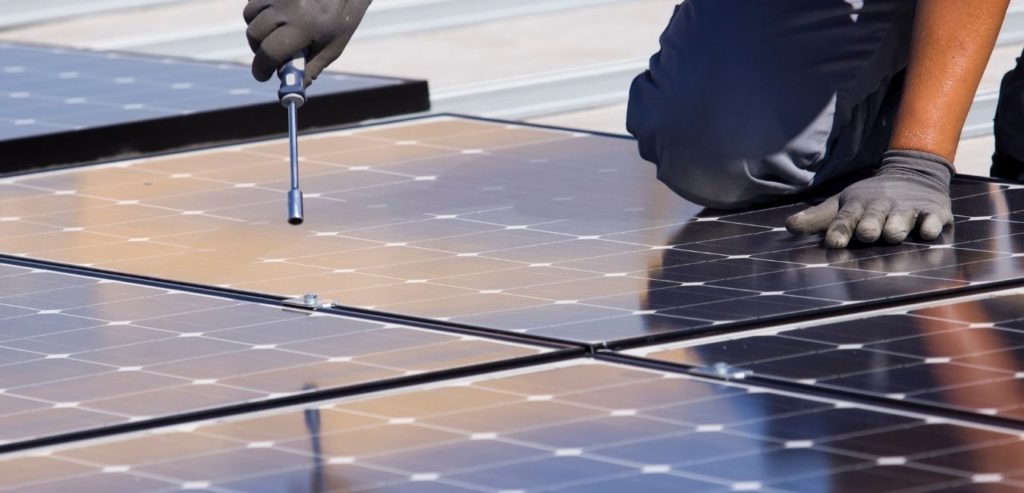Exploring the Pros & Cons of Commercial Solar
Commercial solar energy systems have become increasing popular in recent years, with more and more business owners installing solar systems or expanding existing systems. In this guide, we’ll explore the advantages and disadvantages of commercial solar systems and the seven different methods of solar panel installation.
Advantages of Commercial Solar
There are many advantages of installing solar energy at a commercial property:
Save Money
The biggest benefit of solar energy is saving money on electricity costs. Our experts here at Sunbridge Solar can help you size a solar energy system that can create as much power as your facility uses on average, thereby zeroing out electricity costs as much as possible. Additionally, solar energy has a fixed price, so your business overhead will not be subject to the whims of market changes for natural gas or grid electricity prices. This means that you can more accurately forecast the business’s cash flow and makes budgeting easier.
There are also many incentives available to business owners who switch to solar power, which can dramatically reduce the upfront cost as well as save you money year after year. These incentives can be in the form of tax breaks, rebates, grants, and so forth.
Read More:
Go Green
Switching to solar energy will dramatically reduce your business’s carbon footprint since it is a clean, emission-free energy source, unlike fossil fuels. Not only is this beneficial to the environment, but it also allows you to demonstrate your business’s commitment to corporate responsibility. This PR opportunity can also be used to draw in environmentally conscious customers and win their business.
There are also many incentives available to business owners who switch to solar power, which can dramatically reduce the upfront cost as well as save you money year after year. These incentives can be in the form of tax breaks, rebates, grants, and so forth.
Low Maintenance
Solar energy systems generally don’t require much maintenance beyond ensuring that they stay clean and the sun’s rays aren’t blocked by debris or other obstacles. Some solar panels have warranties of up to 25 years, so you can count on a long life span and know that any major repair costs during the warranty period will be covered by the manufacturer.
There are also many incentives available to business owners who switch to solar power, which can dramatically reduce the upfront cost as well as save you money year after year. These incentives can be in the form of tax breaks, rebates, grants, and so forth.
Accelerated Depreciation Recovery (MACRS for Solar)
The Modified Accelerated Cost Recovery System (MACRS) is a tax incentive that allows for the recovery of certain depreciable assets over a set time period. Some solar equipment qualifies for a recovery period of five years, which can help offset the initial cost of the system somewhat.
There are also many incentives available to business owners who switch to solar power, which can dramatically reduce the upfront cost as well as save you money year after year. These incentives can be in the form of tax breaks, rebates, grants, and so forth.

Disadvantages of Commercial Solar
While the advantages of solar power are significant, there are a few potential disadvantages to be aware of:
May Require Roof/System Upgrades
If your commercial property has an older roof that will need to be replaced in the next decade, you may be better off replacing it before installing solar, which can add a big chunk to the cost of going green. And, if your electrical system is older, it may need to be upgraded or even replaced entirely in order to handle the addition of a solar system.
Expensive Upfront
Purchasing a solar energy system upfront can be quite expensive, especially if you have to make building modifications beforehand. However, there are financing options available to spread the cost over several years as well as solar incentives that can help reduce the upfront costs dramatically. The long-term benefits and cost savings of a solar energy system will certainly make the upfront costs worth it.
Weather Dependent Energy
Obviously, any type of solar energy system will only produce power when the sun is out, so production levels can vary dramatically based on where your business is located and how much sun the panels get on a regular basis. This means there can be big differences in production from season to season, but even business owners who live in places that aren’t sunny all the time can benefit from solar energy. They will just need larger solar arrays to produce the amount they need.
Changing Requirements and Incentives
States are increasingly changing or restricting their net metering programs, which makes commercial solar less economically feasible for many business owners. Eligibility guidelines are also subject to change, which can make the process more difficult to navigate. Our experts at Sunbridge Solar can help you determine if solar is right for your business and which incentives you will be able to take advantage of.
There are also many incentives available to business owners who switch to solar power, which can dramatically reduce the upfront cost as well as save you money year after year. These incentives can be in the form of tax breaks, rebates, grants, and so forth.
Want to Explore Solar for Your Business?
Contact us at Sunbridge Solar today to schedule a free consultation! Our team of commercial solar experts will be more than happy to discuss your energy needs, determine if solar is viable for you, and give you a free solar price quote for your commercial solar project.


